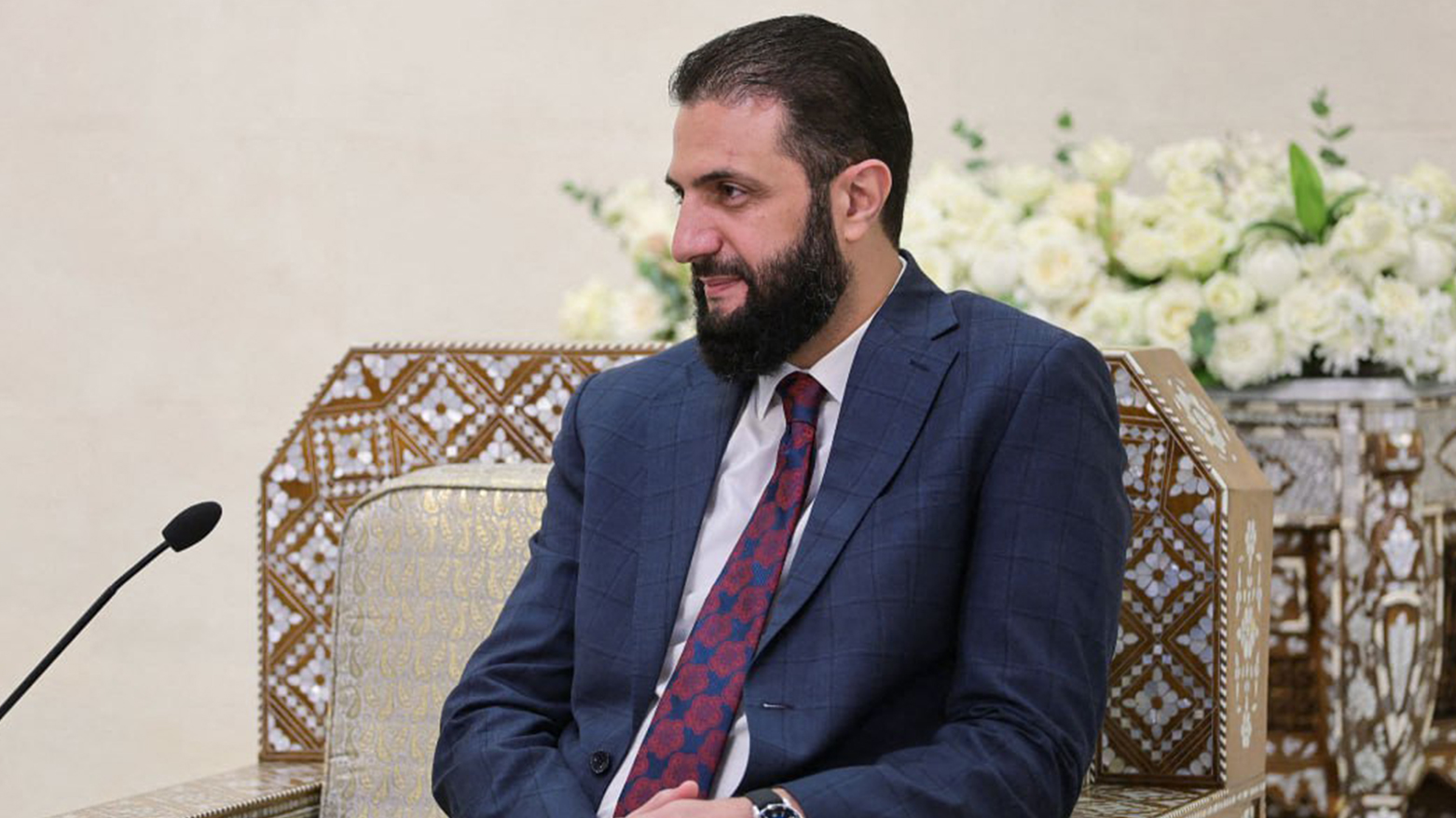Al-Sharaa: Syria’s Interim President Warns Against Partition, Confirms Negotiations with SDF and Security Talks with Israel
Al-Sharaa rejects Kurdish federalism, confirms Damascus-SDF deal but insists SDF doesn’t represent all Kurds. He reveals ongoing security talks with Israel to reinstate 1974 disengagement terms.

ERBIL (Kurdistan24) - In a far-reaching televised interview, Syrian interim president Ahmad al-Sharaa outlined Damascus’s evolving foreign and domestic policy, addressing sensitive issues including negotiations with the Syrian Democratic Forces (SDF), security talks with Israel, strained relations with Iran, strategic ties with Russia, and the future of political transition inside Syria. His remarks, broadcast by Syria’s state-run channel Al-Ikhbariyah on Friday, revealed both the scope of challenges and the ambitions of the post-Baathist leadership.
Al-Sharaa confirmed that Damascus had reached an understanding with the Syrian Democratic Forces, clarifying that the deal had been finalized. However, he insisted that the SDF does not represent all Kurds in Syria and reiterated that any demand for federalism or partition in northern Syria (Western Kurdistan) will be harmful for all.
“The agreement with the SDF is sealed,” he said. “But the SDF does not represent the entirety of the Syrian Kurdish population.”
Al-Sharaa argued that the interests of both the Druze community in Sweida and the Kurds ultimately lie with Damascus, stressing unity over fragmentation.
The interim president accused Israel of seeking to divide Syria and turn it into a battleground for its confrontation with Iran. He disclosed that security talks were already taking place between Damascus and Tel Aviv, linked to the disengagement agreement signed in 1974 after the October War.
“Israel attempts to exploit regional instability to impose partition on Syria,” al-Sharaa declared. “We are engaged in security negotiations with them to ensure a return to the terms of the 1974 agreement.”
He noted that Israel had considered Syria to have “exited” the disengagement pact after the fall of the Assad regime in December 2024. Since then, Israel has conducted strikes inside Syria, but Damascus, he said, has remained committed to the accord. The ongoing talks aim to restore the pre-December 8 status quo.
Turning to Iran, al-Sharaa acknowledged that ties had cooled significantly since the regime’s collapse. “The rupture in relations with Iran is not permanent,” he said, but warned Tehran against fueling sectarianism or interfering in Syria’s internal affairs.
By contrast, he emphasized the importance of maintaining strong and balanced relations with Moscow, describing Russia as “a great power with historic and strategic ties to Syria.”
“When we reached Hama during the liberation battle, we negotiated directly with Russia,” he revealed. “There were commitments exchanged. Russia has since shown no negative interference, and instead engaged positively.”
Al-Sharaa explained that while Syrian forces had the capability to strike Russia’s Hmeimim base during the conflict, they refrained, choosing instead to avoid direct confrontation. This decision, he said, allowed space for pragmatic cooperation and preserved long-standing interests between the two countries.
The president presented Syria’s foreign policy as one of balance and pragmatism. “Syria does not seek confrontation with any state,” he said. “We have built constructive relations with the United States, maintained calm ties with Russia, and cultivated positive relations with Turkey, Saudi Arabia, the UAE, Qatar, Iraq, and Egypt.”
He argued that Syria’s diplomacy in the past nine months had successfully woven a “web of balanced relations” that placed Damascus equidistant from competing global and regional powers, guided solely by “Syrian interests first.”
On the domestic front, al-Sharaa addressed the upcoming parliamentary elections, describing them as part of a broader transitional process. He outlined a roadmap that began with filling the presidential vacancy after the regime’s fall, followed by convening a national conference, forming a government, and now moving toward legislative elections.
“These elections will not be permanent but rather transitional,” he explained. “We face difficulties due to lost documents and the displacement of half the Syrian population, but local councils will nominate community figures to represent each province.”
He acknowledged that broader reforms—including constitutional drafting and institutional restructuring—remain pending, emphasizing that Syria’s transitional period would, like France after its revolution or Germany after World War II, require time and patience.
Al-Sharaa reflected on tensions in Sweida, admitting mistakes by all parties, including the state. He said reconciliation committees had been established to heal divisions between Druze and Bedouin communities, while rejecting any separatist ambitions.
“The people of Sweida are deeply patriotic and committed to Syria,” he said. “Their future lies within a united Syria, not in partition or independence.”
On the SDF, he confirmed ongoing negotiations but accused external actors, of delaying implementation. The agreement, he said, includes integrating SDF fighters into the Syrian army and granting certain local administrative privileges in Kurdish-majority areas.
“Syria will not cede a single grain of soil,” he vowed. “But we are ready to accommodate diversity within a unified Syrian state.”
Al-Sharaa devoted part of the interview to the question of press freedom and political pluralism. He argued that Syria had entered a new era where freedom of expression was no longer tightly restricted.
“The level of freedom in Idlib was high, and today across Syria it is even higher,” he asserted. “No authority in the world can silence people in the age of social media. There must be laws, but these laws should be minimal, focused, and consistent with the higher values of society.”
He insisted that criticism should be embraced as a source of correction and improvement, rejecting the return to authoritarian practices of the past. “Political pluralism is the natural future of Syria,” he said, adding that the forthcoming parliament and constitution would institutionalize this transformation.
In his closing remarks, al-Sharaa addressed the Syrian people directly. “I carry overwhelming love for Syrians,” he said. “Every month, every two months, there will be progress that touches the daily lives of our citizens. What has been achieved in nine months was once thought impossible. With patience, trust, and gradual effort, we will rebuild Syria into a united and prosperous state.”